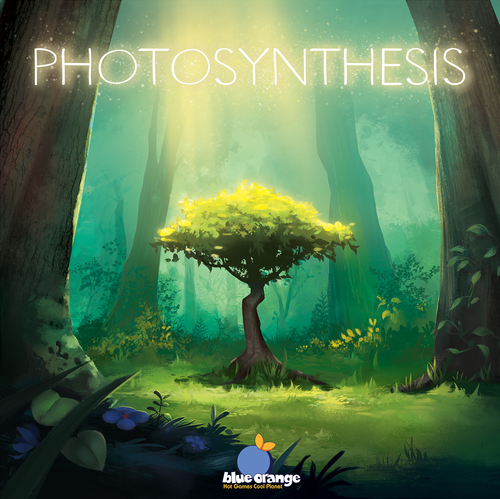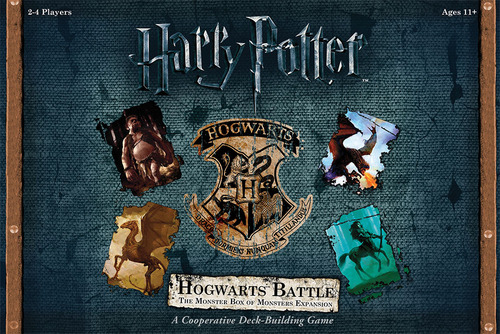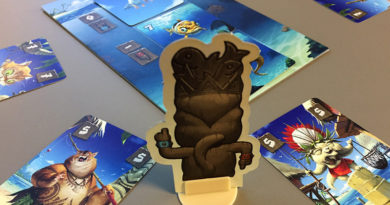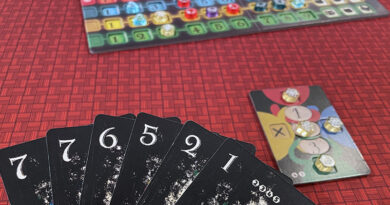Oh, Captain! bluffing game review

“Oh, Captain, I’ve found an awesome Grappling Hook. Do you want it?”
“No. You go ahead and use it.”
“Sweet! I’m going to use it to steal some loot!”
Such could be the game play conversation in Oh Captain!
Of course, the player could also be bluffing and not really have a grappling hook. Because that’s how things go when you’re looting island treasure.
Oh Captain! is a new bluffing game from Ludonaute and Asmodee where players compete for the best treasure. But along the way, they can also use the items they find (or what they say they find) to take action against other players.
But they have to run it by the Captain first. Because the Captain may want to use that item instead.
Of course, when you bluff among fellow pirates, all may not go according to plan. You’ll just have to take your chances…
How to play Oh Captain!
Oh Captain! is a quick bluffing game for a wide audience. In the game players try to keep the most valuable Loot for themselves by stealing coins, stealing cards, mutiny, and bluffing.
To begin, players first choose a Captain who gets 5 Coins and the Captain’s Bottle. It’s good to note here that the role of Captain may change during the game through mutiny. Everyone else begins the game as Explorers who begin with 3 Coins and 1 Purse card each.
The Explorers place their Purse card face down in front of them as the start of their Loot.
All players (Captain and Explorers) also choose an Adventurer and place the corresponding sheet in front of them. Each Adventurer has a unique special ability players will get to use during the game. The Captain flips his Adventurer sheet to the non-ability side.
To set up the Loot deck players take the Nomads’ Arrival card and shuffle it with 3 random and unseen cards. They then shuffle the rest of the cards and place the four cards (with the Nomads’ Arrival card) at the bottom of the deck. This draw deck is then placed in The Cave (the card dispenser device).
The top 3 cards of the deck are drawn and placed under the Captain’s Bottle to form the starting discard pile. Whoever is Captain can look at the cards in the discard pile at any time.
The Explorer on the Captain’s left will be the first player.
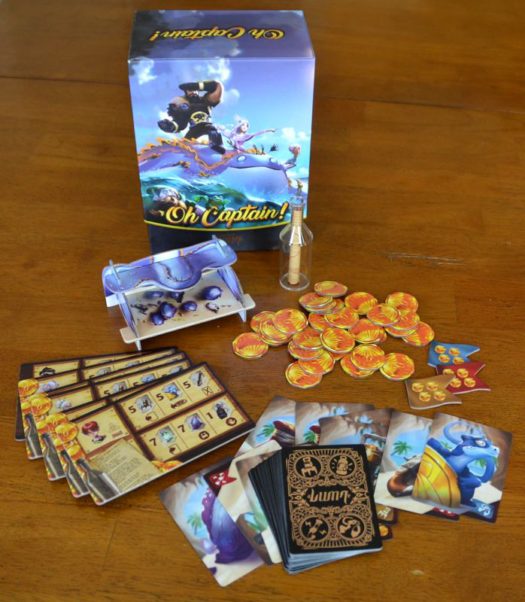
Player Turns
Only the Explorers get to take turns in clockwise order.
Mutiny or Loyalty?
At the start of their turn, if an Explorer has more Coins than the Captain they can declare a Mutiny or pledge Loyalty.
To stage a Mutiny, the player takes the Captain’s Bottle and discard pile and takes 1 Coin from the supply. The old Captain is now an Explorer. Both players flip their Adventurer sheet to the opposite side. And the turn immediately ends.
To pledge Loyalty, the player simply gives 1 of their Coins to the Captain.
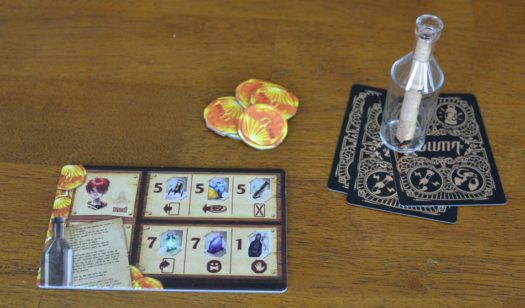
Exploration
If the active Explorer player didn’t declare Mutiny, they then explore. They draw the top card of the deck from the dispenser and secretly looks at it.
They then announce to the Captain what they found. They can tell the truth or bluff. If they draw an Egg, they must bluff.
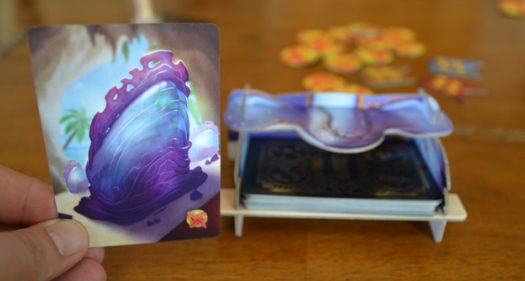
Captain’s Choice
Once announced, the Captain then decides whether to buy the item or let the Explorer use it.
If the Captain buys it, he pays the Explorer 1 Coin, takes the card, and places it face up in his Loot. If the card matches what was announced, the Captain uses the card effect. If it doesn’t match, the Captain doesn’t get to do the action.
If the Captain decides not to buy it, the Explorer places the card face down in their Loot and takes the action associated with the announced card. One stipulation is that Explorers can’t attack the Captain with the announced action.
Challenges
The attacked Explorer can then challenge the attacker. If challenged, the attacker reveals the card. If it’s the announced card, the attacker carries out the action and takes 1 of that player’s coins.
If it’s not the announced card (attacker lied), the challenger ignores the attack and takes one of the attacker’s coins.
If the player under attack chooses not to challenge, the attacker simply carries out the action. The card isn’t revealed and the active Explorer adds it to their Loot.
Card Effects
Now you know the flow of play, it’s time to take a look at the actions associated with each type of card.
- Pistol: Take a Loot Card (face up or face down) from an Explorer and place it face down in the discard pile under the Captain’s Bottle.
- Grappling Hook: Take a Loot Card (face up or face down) from an Explorer and place it in your own Loot pile without flipping it.
- Lizard: Take 1 Coin from another Explorer.
- Lantern: Reveal a face down card in another Explorer’s Loot pile.
- Egg: No effect. The Explorer must claim a different type of card.
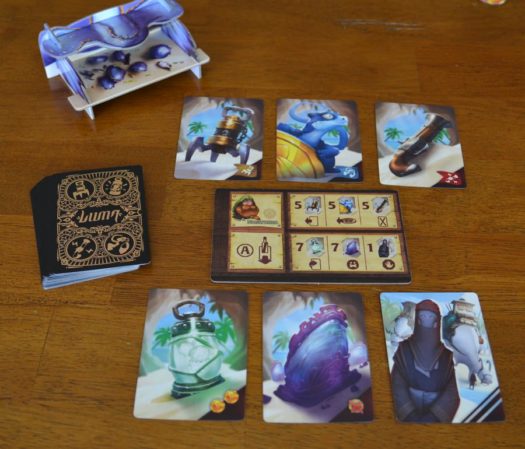
End of Game
The game ends as soon as an Explorer draws the Nomads’ Arrival card from the deck.
Players reveal all their Loot and first compare sets. The players with the most Pistol, Grappling Hook, and Lizard cards get the appropriate Majority token. Each player adds up the points from their Lantern cards, Purse cards, Majority tokens, and Coins (each coin is 1 point) then subtracts 1 point for each Egg they have.
The player with the most points wins the game.
Can the whole family enjoy playing Oh Captain?
Like all the bluffing games we’ve reviewed, Oh Captain! isn’t for everyone. That because many people don’t like such games no matter how it’s played.
On the other hand, there are still plenty of people who really enjoy bluffing games. And Oh Captain delivers a fun option.
In our family, the only person who doesn’t like bluffing games is mom. Actually, that’s saying it mildly. She detests bluffing games.
So even though we talk about this being a lighter bluffing game, she’s not interested.
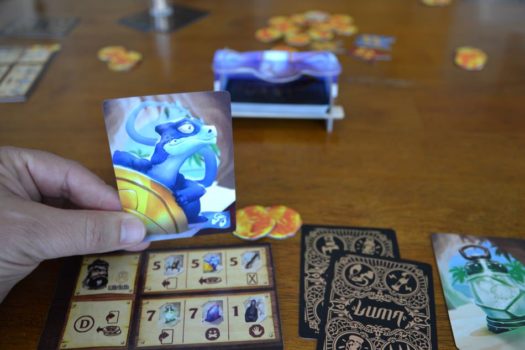
But for the rest of us, we have fun playing for a number of reasons.
The first thing we really enjoy is the option for a Mutiny at the start of your turns. In our first game, we didn’t use that option much and the Captain ran away with the game. Thereafter we’ve been much more apt to choose a Mutiny to become the Captain.
That’s because the Captain gets a number of benefits. While they don’t get to use their Adventurer’s special ability while Captain, they do get to look at all the cards in the discard pile. And this gives the Captain a big advantage in choosing when to buy a card from an Explorer. Knowing what cards have been used so far lends itself to having a better sense if someone is bluffing.
The downside to being the Captain though is that if you want an announced card, you have to buy it and spend your coins. And this means you’ve now got less money and the chance of being stripped of your Captain’s title goes up. (What goes around, comes around.)
Of course choosing not to Mutiny also means you’re paying the Captain a Loyalty Coin each turn. And giving the Captain more money just helps him get richer and richer – also making it less likely for another Mutiny. Hopefully he’ll buy a card soon to spend those coins, but you never know.
Which leads to our next reason for enjoying the game – Money is constantly shifting hands. Players are paying Loyalty to the Captain, the Captain is buying cards, and all players are taking coins from each other. It becomes quite the fun economy of keeping things in check.
Then there are the special abilities of each Adventurer. Adding a little asymmetry to the game is awesome!
Just when you think you’ve got the upper hand, a player uses their ability to wipe the smirk off your face.
From flipping cards to taking extra coins or cards, the abilities add a great swashbuckling flavor to the game.
Lastly, we also like the risk inherent in Challenging an attacker.
Since only the player being attacked can challenge, all eyes are on that Explorer – with some egging him on to challenge and his gut saying otherwise.
We’ve also found this to drive who gets attacked. Some players are much more prone to call a bluff than others. Knowing this, players will adjust who they choose to attack when they’re bluffing vs when they’re telling the truth. Which then takes on a life of its own (cue, “so I can clearly not choose the wine in front of you…”).
That all adds up to a fun bluffing game that most of us really enjoy.
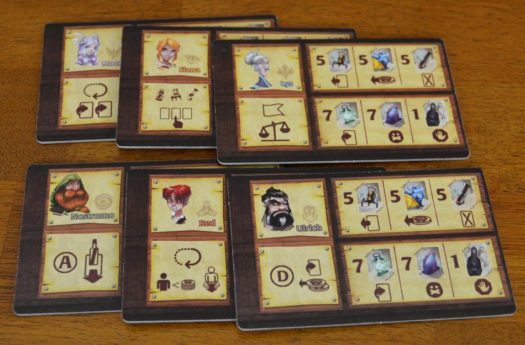
Area for improvement
While the game is a lot of fun and the components and artwork are great, there is one thing we wish were better.
We wish the cards had the icon identifier in their upper corner instead of just in the bottom corner.
For the majority of the game, players are only looking at one card at a time – the one they draw. So the icon location isn’t that big of a deal because they just look at the center of the card.
However, when the Captain wants to inspect the discard pile, having an icon in the upper corner could be a big plus. Since there are many mutinies in a game, the Captain’s role changes frequently. And each time it does, the new Captain wants to take a peek at the cards. Without icons (or something) in both corners, the Captain has to look at each card individually.
It’s a minor quibble, but it’s still a wish.
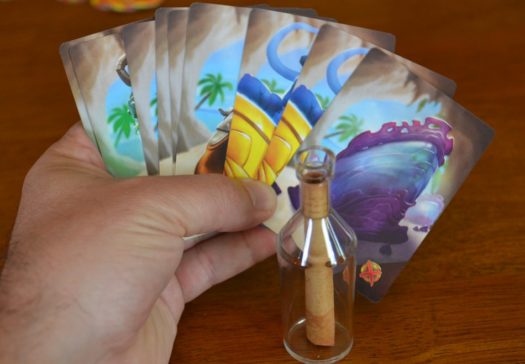
How does Oh Captain! score on our “Let’s Play Again” game meter?
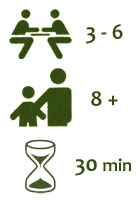 Oh Captain! scores high on “let’s play again” game meter because we enjoy light bluffing games. (Well, most of us enjoy them and the one that doesn’t isn’t playing to begin with, so that person isn’t around to call out “let’s play again” anyway.)
Oh Captain! scores high on “let’s play again” game meter because we enjoy light bluffing games. (Well, most of us enjoy them and the one that doesn’t isn’t playing to begin with, so that person isn’t around to call out “let’s play again” anyway.)
Since the game is relatively short and there isn’t much to the setup, it’s super simple to just start another game right after one finishes. And we enjoy playing back-to-back games when bluffing is involved because behavior from one game carries over to the next.
We’re not saying people hold grudges from game to game, but when you’ve been tricked by someone in one game, you’re going to think differently in the next game.
So lots of times it’s the second game that’s the most fun.
We’d like to thank Asmodee for a review copy of Oh Captain!

